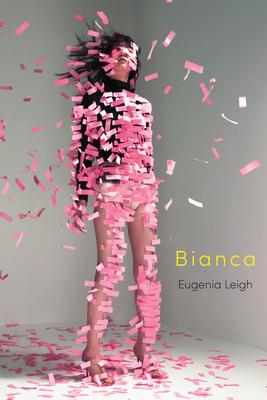"I thought I forgave you," Eugenia Leigh tells the specter of her father in Bianca. "Then I took root and became / someone's mother." Leigh's gripping second collection introduces us to a woman managing marriage, motherhood, and mental illness as her childhood abuse resurfaces in the light of "this honeyed life." Leigh strives to reconcile the disconnect between her past and her present as she confronts the inherited violence mired in the body's history. As she "choose[s] to be tender to [her] child--a choice / [her] mangled brain makes each day," memories arise, asking the mother in her to tend, also, to the girl she once was. Thus, we meet her manic alter ego, whose history becomes the gospel of Bianca: "We all called her Bianca. My fever, my havoc, my tilt." These poems recover and reconsider Leigh's girlhood and young adulthood with the added context of PTSD and Bipolar Disorder. They document the labyrinth of a woman breaking free from the cycle of abuse, moving from anger to grief, from self-doubt to self-acceptance. Bianca is ultimately the testimony of one woman's daily recommitment to this life. To living. "I expected to die much younger than I am now," Leigh writes, in awe of the strangeness of now, of "every quiet and colossal joy."

"I thought I forgave you," Eugenia Leigh tells the specter of her father in Bianca. "Then I took root and became / someone's mother." Leigh's gripping second collection introduces us to a woman managing marriage, motherhood, and mental illness as her childhood abuse resurfaces in the light of "this honeyed life." Leigh strives to reconcile the disconnect between her past and her present as she confronts the inherited violence mired in the body's history. As she "choose[s] to be tender to [her] child--a choice / [her] mangled brain makes each day," memories arise, asking the mother in her to tend, also, to the girl she once was. Thus, we meet her manic alter ego, whose history becomes the gospel of Bianca: "We all called her Bianca. My fever, my havoc, my tilt." These poems recover and reconsider Leigh's girlhood and young adulthood with the added context of PTSD and Bipolar Disorder. They document the labyrinth of a woman breaking free from the cycle of abuse, moving from anger to grief, from self-doubt to self-acceptance. Bianca is ultimately the testimony of one woman's daily recommitment to this life. To living. "I expected to die much younger than I am now," Leigh writes, in awe of the strangeness of now, of "every quiet and colossal joy."